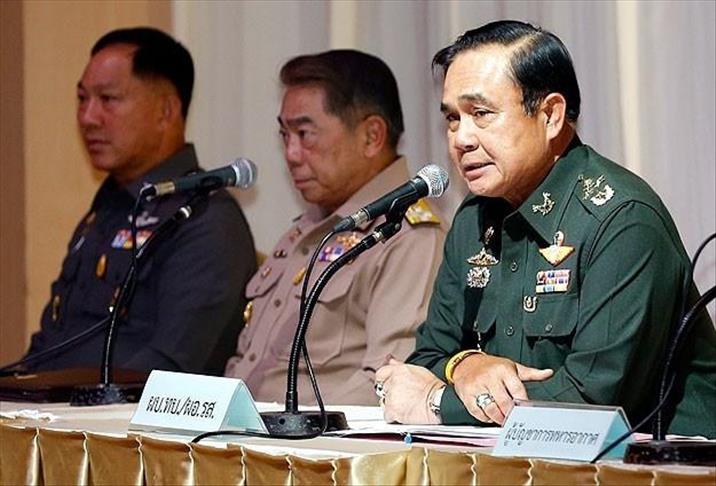
BANGKOK
Thailand’s junta-appointed National Reform Council has concluded its debate on a draft constitution widely criticized by political party leaders and civil society representatives, suggesting only minor changes.
The move opens the way for the military-appointed committee who drafted the charter blueprint to submit it to the Thai government and junta for further examination.
Features of the draft that drew criticism from the reform council included its allowance of “political groups” participating in elections along with political parties, the Senate selection process, and its length and excessively detailed content.
Members of the drafting committee, however, have staunchly defended their work.
General Letrat Rattanawanich, committee spokesman, explained that political groups “as defined by the charter are different from those involved in past demonstrations.”
He assured that the groups “will be kept to the same rules on good governance that will be applied to political parties.”
The Thai junta seized power in a coup last May, after months of massive demonstrations against the government of former Prime Minister Yingluck Shinawatra.
For much of the last decade, Thailand has been paralyzed by protests either by supporters of ex-premier Thaksin Shinawatra -- Yingluck’s elder brother overthrown in a 2006 coup -- or by his opponents.
Meanwhile, legal expert Bowornsak Uwanno, drafting committee chairman, hit back at those questioning the length of the blueprint, which -- with 315 clauses -- is the kingdom’s longest since the abolition of the absolute monarchy in 1932.
"The content of the charter is the only thing that matters, not its length,” he told the Bangkok Post on Saturday, adding that the level of detail was due to the chapters on reconciliation and reforms.
Outside the confines of the Reform Council, however, members of political parties and civil society organizations have slammed the draft, with staunch junta critics such as political scientist Ji Ungpakorn calling it the “worst Thai constitution ever.”
Politicians from both sides of the spectrum have expressed that the document is so retrograde that it may be better to remain under military rule for the coming two to three years rather than hold elections under its provisions.
Wirat Kalayasiri, head of the anti-Thaksin Democrat Party legal team, has stressed that an election “must be fair and held under a constitution approved by the people in a referendum.”
“We want a good election, not just a fast election,” he said.
Similar sentiments were been voiced by Worachai Hema, a former MP of the pro-Thaksin Puea Thai party, who warned, “if the draft constitution is unchanged, the political conflict will never end.”
Civil society leaders have also expressed their disappointment.
“All innovations in this charter are conservative,” Gothom Arya, Research Center for Peacebuilding director at Bangkok’s Mahidol University, told The Anadolu Agency.
“It is a draft based on the idea that politicians are bad and untrustworthy and that only [junta-appointed] assembly members can devise and implement reforms."
The draft includes measures aimed at limiting the power of elected politicians. One clause says senators will be selected from candidates nominated by ex-politicians and high-ranking civil servants (including military officers), while another proposes a mixed-member proportional representation election system that will prevent large parties dominating the parliament -- resulting in coalition governments as in pre-1997 Thailand.
The most controversial clause is one proposing that a non-MP can become prime minister upon receiving the vote of two-thirds of the House of Representatives.
After the government and the junta review the blueprint, the drafting committee will have sixty days to adjust it. The National Reform Council will then vote on whether to approve the draft, which if rejected, will lead to the dissolution of both organizations and the drafting process starting from scratch.
Thailand has had more than a dozen charters or constitutions since 1932, many adopted following the 18 previous military coups.
Anadolu Agency website contains only a portion of the news stories offered to subscribers in the AA News Broadcasting System (HAS), and in summarized form. Please contact us for subscription options.

